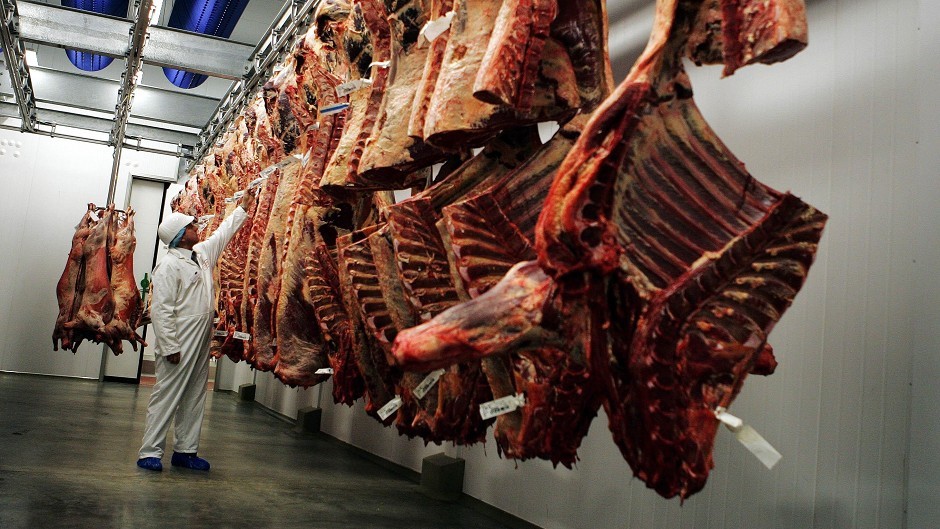The Brexit divorce of the UK from the EU has sent shivers of fear across the now ‘European’ border into the Republic of Ireland.
Already this week in the corridors of Ireland’s Assembly Dáil Éireann there are whispers that Ireland could soon be next to join the UK leaving the EU.
The Republic followed the UK into the European Economic Community in 1973 and since then has enjoyed a healthy dependence with the UK as its major trading partner.
Ireland imports around 4billion euros (£3.35billion) of UK food products each year.
Around 50% of Irish beef goes to the UK along with 60% of Ireland’s cheese exports and 84% of its poultry exports.
Since Brexit, there are numerous fears that a physical border with Northern Ireland will be re-established and that trade will be hard hit.
However, it is the exchange rate between the British pound and the euro that is the first major concern to Irish farmers.
Ireland’s beef trade is worth a staggering1.1billion euros (£920million) to the country’s economy but the Brexit vote has forced prices downwards.
Already the uncertainty left following the Brexit has seen 10 euro cents (£0.08) per kilogram wiped off the price of beef at the factories in Ireland on top of a 100 euros (£83) per head loss for store cattle at some of the marts.
With Northern Ireland and the rest of the UK using the pound which is weakening, the fears for Ireland are that export markets, including sheep exports, will be lost with buyers focusing on cheaper UK prices.
Irish farmers are also fearful of any new trade tarriffs imposed following the UK’s exit from Europe.
Irish Farmers’ Association (IFA) president, Joe Healy, said: “2016 is already an extremely difficult year for farm incomes. With low product prices across many sectors, the fall in the value of sterling against the euro is a further blow for exporting sectors.
“For Irish agriculture and the agri-food sector, with 40% of our agri-food exports going to the UK, and a shared land border, the implications of the decisions to leave will be significant.
“It is critical that steps are taken by governments and institutions within Ireland, the UK and the EU to provide the reassurances that will minimise uncertainty and stabilise exchange rates.”
